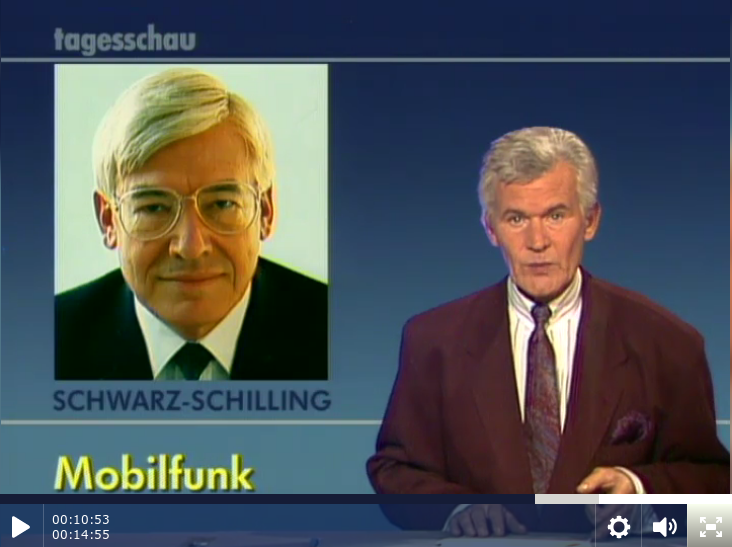
There is a lot of media attention in Germany on the upcoming spectrum auction for 5G that is scheduled for early 2019. Like in previous rounds, spectrum is awarded via an auction to the highest bidders. Someone recently asked me if spectrum has always been auctioned so I had a look in my archive to find some details from days long gone.
Most of us in the industry still remember the 3G spectrum awards. In many countries in Europe, spectrum in the 2.1 GHz range was auctioned in the early 2000s. In Germany, for example, six companies were willing to pay a total of 50 billion Euros to use a few MHz of spectrum. Totally crazy in retrospect but everybody knew that without this spectrum they would be left behind. So the 4 incumbents had no other chance but to bid whatever it took and hope for the best. Two newcomers (Quam and Mobilcom) also got spectrum but had to fold operations once the massive overspend dragged them down.
Looking back an extra 10 years to 1989, things were very different. Except for the UK, perhaps, there were mostly state owned telecommunication monopolies in Europe. At the end of the 1980s, many governments saw an end to the monopolies and competition as important to foster innovation and progress. Most countries in Europe thus wanted to give out two licenses for GSM, one for the state owned incumbent and one to a private company.
In Germany, the license was not auctioned but a contest was held for interested companies and consortia to submit applications on how they wanted to commit and build a GSM network if they were awarded a license. In the end, the Mannesmann led consortium won the contest and from what I can tell, they didn’t have to pay anything for the license, they only had to stick to the commitments they made such as the promised network deployment and company structure.
Susanne Päch describes the process in detail in her book “Die D2-Story” from 1994. On page 106, she makes a reference that the GSM decision was announced to the press by the Postminister (postal minister) on 8. December 1989 and reported in the “Tageschau”, a daily news magazine. She was off by a day, it was actually the 7. December 1989. The broadcast is available on the net if you are interested (and if you can understand German), fast forward to 10 minutes 50 seconds. Those were the days folks!